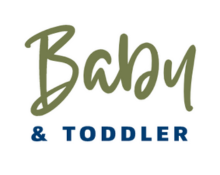
Breast surgery, such as breast augmentation, reduction, or reconstruction, can potentially impact breastfeeding. The extent to which breastfeeding is affected depends on various factors, including the type of surgery, the techniques used, and individual circumstances. Here are some considerations regarding breast surgery and breastfeeding:
Type of surgery: Different breast surgeries can have different effects on milk production and breastfeeding. Some procedures, like breast augmentation with implants, involve incisions around the nipple or underneath the breast, which may disrupt milk ducts or nerves that are important for breastfeeding. On the other hand, surgeries that preserve the nipple and areola, or those that don’t interfere with the milk ducts, may have a lesser impact on breastfeeding.
Timing of surgery: The timing of the surgery in relation to your breastfeeding goals can also play a role. If you had breast surgery before becoming pregnant, the impact on breastfeeding may be different compared to having surgery during or after pregnancy. Generally, surgeries performed before pregnancy may have a lesser impact on milk production.
Individual factors: Each person’s anatomy and physiology are unique, which means the impact of breast surgery on breastfeeding can vary from person to person. Some individuals may experience no or minimal disruption to milk production and breastfeeding, while others may face challenges.
Consult with a healthcare provider: If you have had breast surgery or are planning to undergo breast surgery and you are interested in breastfeeding, it’s essential to discuss your concerns and goals with a healthcare provider. A lactation consultant, in particular, can provide guidance and support specific to your situation. They can assess your individual circumstances and provide recommendations based on your surgery and breastfeeding objectives.
Supplemental feeding options: In some cases, if milk production is insufficient or breastfeeding is challenging due to the effects of breast surgery, supplemental feeding options such as pumping breast milk, using donor milk, or using formula may be considered. A lactation consultant can help you explore these options and provide guidance on how to best nourish your baby.
Remember that every breastfeeding journey is unique, and the impact of breast surgery on breastfeeding can vary. It’s important to seek personalized advice from healthcare professionals who can evaluate your specific situation and provide guidance based on your individual needs and circumstances.
